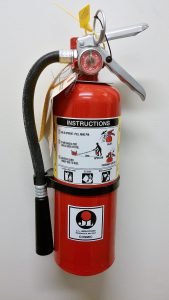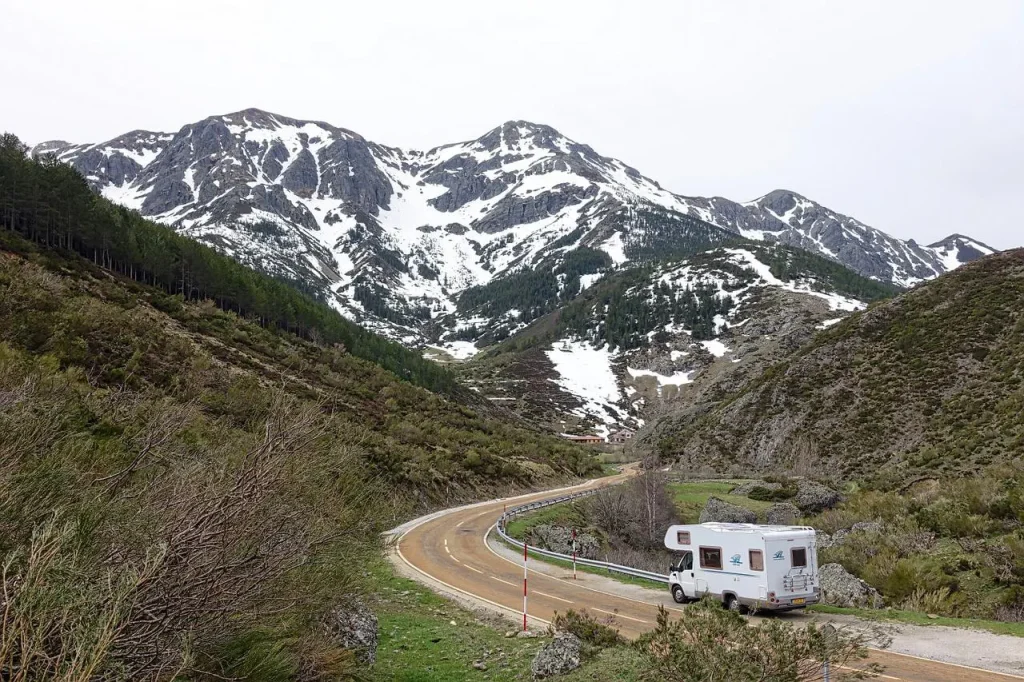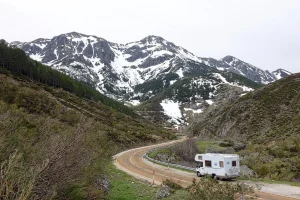Is there anything quite as exciting as heading out for an RV trip with the whole family? RV travel has so much to offer, from the freedom of the open road to incredible natural destinations.
Family travel is even more fun with peace of mind. You can relax and enjoy your trip when you have your RV safety bases covered. We all know that sometimes plans go awry, so we have some safety tips to help you prepare for your next adventure.
RVs are big, complicated machines. Everyone in your family can play a role in keeping your vacations safe and fun.
Cover Your Bases
Make sure you have good insurance and roadside assistance plans in place. Check to make sure your policies are in good standing and all your plans cover the areas where you’re traveling.
Family travel also means making plans. Know where you’re going, make reservations, and make sure you have enough food and water to get you there.
Check Your Tires
Before you drive a single mile, be sure your RV has good tires with good pressure. Those babies are going to be doing a lot of heavy lifting, so treat them kindly.
Tire blow-outs on the road are dangerous and scary. Flat tires at the campground are just an all-around bummer. Don’t risk it—check them before you go.
Communication
As much as you like to get off the beaten path on RV trips, it isn’t safe to cut yourself and your family off completely. Make sure you have a way to communicate with the outside world, even if you’re boondocking.
Have reliable cell phones, and plenty of chargers. Check the availability of Wi-Fi at your destinations. If you’re going off the grid, have a backup like a satellite phone. Make sure someone knows where you are and when you’re coming home.
You should also communicate with your campground neighbors. Have and use in case of emergency pet stickers to ensure that your pets are rescued should something happen while you’re away from your coach.
On the Road
Driving
Nobody wants to have an accident on the road in their RV. Make sure that your driver is cautious and experienced behind the wheel.
If you’re new to RV life, take a class on safely driving a large vehicle. If you’re an experienced RVer and want to share the driving, make sure your new drivers get the training they need to handle your vehicle.
Every camper, motorhome, and trailer handles a little differently. Make sure all drivers have plenty of practice in a safe place before hitting the open road.
Weather
Don’t be a hero in bad weather. Being on the road in an RV is already challenging—you don’t need to be driving in blinding rain. Check road conditions each day you’ll be traveling.
Another benefit of checking road conditions? You’ll be able to plan around construction, local traffic snarls like festivals, and other potential obstacles.
Know Your Route
Your RV is not always going to be able to take the same route as your car. Make sure the roads to your destinations will accommodate the size of your vehicle. You may not be able to maneuver well enough for mountain roads or rustic woodland drives.
Buckle Up!
Of course, you’ll use your seatbelt while driving or in the passenger seat. But everyone in your RV should be buckled in when you’re moving. An RV may be a home on wheels, but when it’s moving it’s like any other vehicle.
Have secure carriers or harnesses for all of your pets.
Make sure your belongings are safely stowed. Check all your cabinet doors and compartments to ensure they have working latches. One sharp turn or quick step on the brakes will turn unsecured items into potentially harmful projectiles.
Don’t forget the items you have attached to the outside of your rig. Bikes are great to have with you for family rides. If they make it to the campground. Make sure your racks and bungees are all in good condition.
Basic Safety Equipment

You should never travel without basic safety equipment in your RV. RV travel isn’t so different from being in your home. You sleep, eat, and live in your vehicle. Unlike your home, you also pull it onto the highway. So here’s a short list of must-have items:
- Fire extinguishers
- Smoke, carbon monoxide, and propane detectors and alarms
- First-aid supplies
- Road safety kit with reflective triangles, flares, tire pressure gauge, jumper cables, and more
- Well-stocked toolkit
- Battery-powered emergency radio
- Several high-quality flashlights
- Water pressure regulator to protect your plumbing
- Surge protectors
- Wheel chocks
A note about wheel chocks. You need them, and you need to use them every time you park. Not just to keep your motorhome from rolling into its neighbor, but to keep it from harming your family and other campers.
If you’re traveling with kids, let them help get your safety equipment ready. Teach them skills for staying safe both on the road and at the campground. Keep your instructions age-appropriate, but make sure kids understand that the whole family plays a part in making RV travel safe and fun.
There are endless safety items you may need to bring depending on your vehicle, family, and destination. Sit down before you leave and make a complete travel plan. Add extra safety equipment as needed for your RV travel circumstances.
Exit Plans
Does it seem silly to have an exit plan for such a small living space? It isn’t. If something happens, each member of your family needs to know all of the ways to exit the vehicle.
Make sure everyone knows the closest exit to where they sleep and how to use it. Plan where you will meet outside in case of an emergency and make sure the whole family knows the plan.
If you have a large motorhome or 5th wheel, consider adding an emergency ladder to your safety equipment.
Share the Load
Make sure you know how much weight your RV can carry. And don’t exceed that weight. It’s tempting to ignore this step, assuming you can’t possibly be overloading your vehicle.
Don’t assume. Know, check, and follow the rules for your RV. Make sure you balance the load evenly to avoid things like tire blow-outs. Do some research on your RV and figure out the best, safest way to stow your gear.
Mind Your Manners

There are few quicker ways for your family to get in trouble during RV travel than tangling with wildlife. Know what to expect before you go and have a family discussion about respect for local critters.
If you’re traveling to a new part of the country, read up and talk to other campers about the area. Midwesterners headed to the Southwest need to know what a scorpion looks like before they encounter one.
Teach your kids how to safely enjoy wildlife from a distance. Never approach a wild animal. That bear cub is cute, but its mama is close by and has no patience for human interference.
Maintenance, Maintenance, Maintenance!
Have we said this before? Why yes, we have. That’s because RV travel is at its best when your vehicle is properly maintained. We’re a little like a broken record on this one—there is no better way to make sure your vehicle is safe than to have regularly scheduled maintenance.
Talk to your RV shop about the RV travel you have planned and make an appropriate schedule. At the beginning of each season, have your RV cleaned and checked over thoroughly. You don’t want to head out on your first trip of the year with rodent stowaways or an unnoticed electrical problem.
Take your camper or trailer in for maintenance frequently during the season to avoid breakdowns during your vacations. Every trip you take adds some wear and tear to your rig, so stay on top of minor repairs.
Also, talk with your local shop about a checklist. They know your vehicle and can help you make a checklist to run through before every RV trip. There are a lot of details to go over before every ride.
Having a checklist that is specifically designed for your RV takes the guesswork out of those pre-travel safety checks. You need to check batteries, clean tanks, and check seals like everyone else. But maybe you also need to make sure a little crack hasn’t gotten bigger or a glitchy awning is working properly.
Taking care of basic maintenance specific to your RV not only helps make your RV travel safer, but it also helps your motorhome or 5th wheel last as long as possible.
Contact us or stop on by Leisure Coachworks in Fontana, CA, for more information on maintaining your RV.


